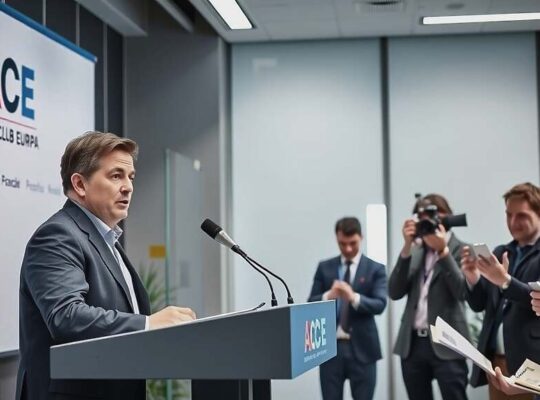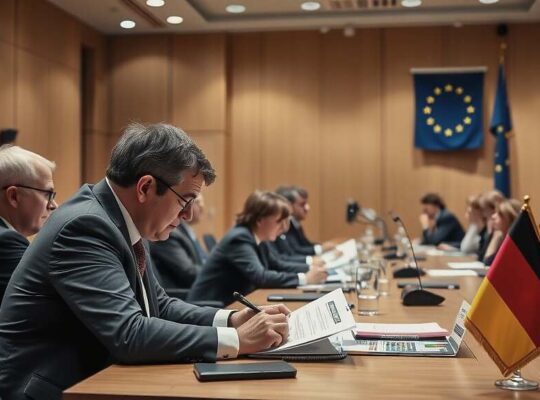Berlin’s institutions of higher education face significant budget cuts, prompting concerns about the city’s future competitiveness and talent pool. The Berlin Senate has announced a reduction of over €140 million in funding for the city’s universities for the 2025 fiscal year. As a direct consequence, universities are now compelled to curtail the number of available study places by ten to fifteen percent, while also confronting the necessity to eliminate professorships and potentially close entire departments.
The financial constraints extend beyond 2025, with planned funding for 2026 and 2027 falling below the levels initially promised in 2024. A decision regarding the universities’ acceptance of the proposed financial plan until 2027 is scheduled for Wednesday.
A joint appeal, published in the Tagesspiegel, urges the Senate to reconsider the cuts. Sebastian Stietzel, entrepreneur and President of the IHK Berlin, voiced concerns that short-term savings could lead to a decrease in competitiveness and a diminished appeal as a location for businesses. He warns that reduced study places today could result in a shortage of skilled workers for Berlin’s businesses in the future.
Professor Juri Rappsilber, of the Technical University of Berlin, expressed hope that the challenging circumstances could act as a catalyst for necessary reforms within universities. He advocates for accelerating digitalization, reducing bureaucracy, streamlining governance structures and shifting from a culture of preservation to one of innovation. He underscored the need for cooperation rather than restrictive oversight from policymakers.
Günter M. Ziegler, President of the Freie Universität Berlin and spokesperson for the Berlin University Alliance, criticized the Senate’s long-term vision. He expressed dismay that the proposed double budget for 2026/27 continued to place universities under significant financial pressure, forcing them to reduce capacity and scale down operations – while simultaneously expecting improvements in quality. Ziegler contends that this approach is unrealistic and risks Berlin losing out on exceptional opportunities.












